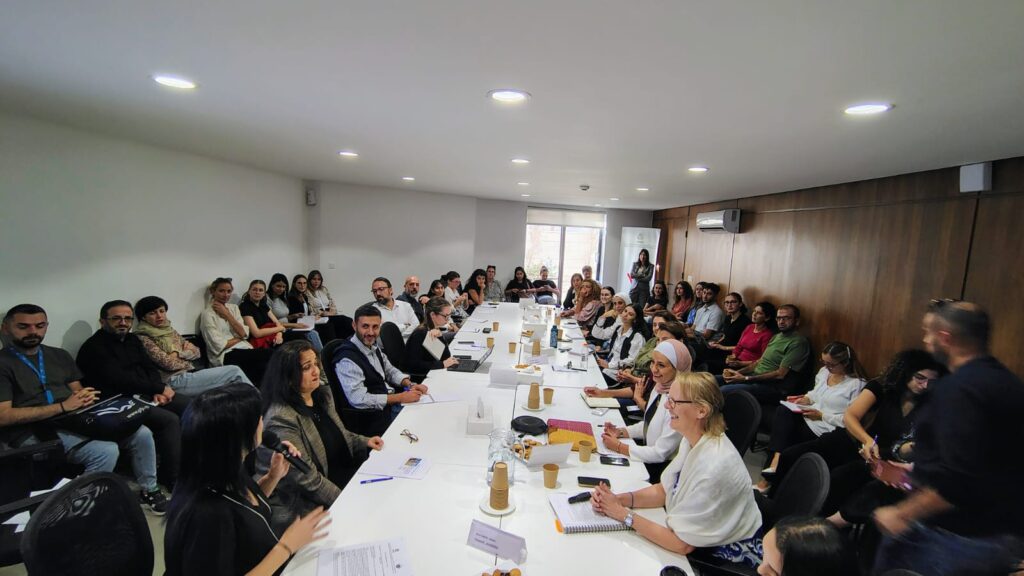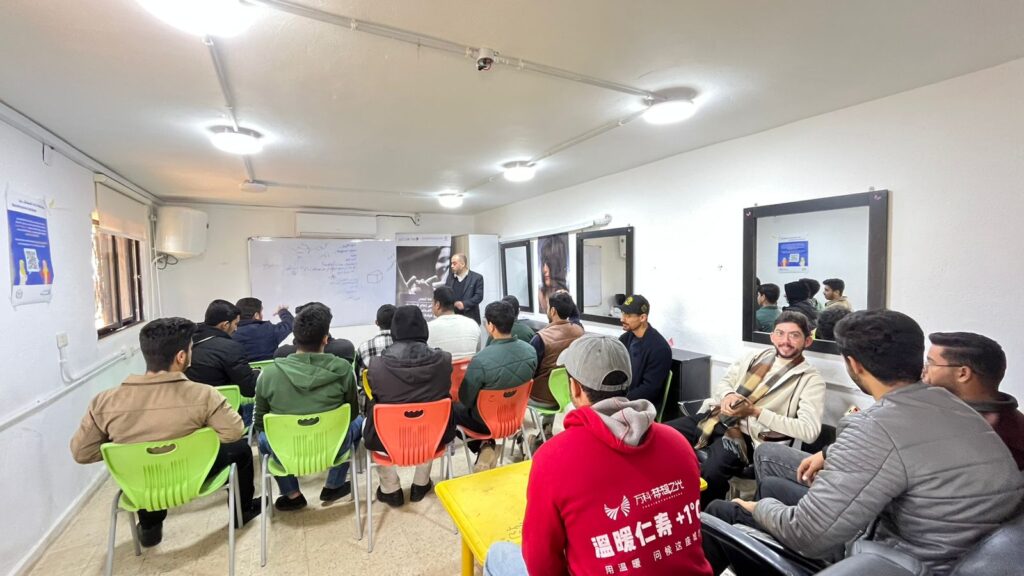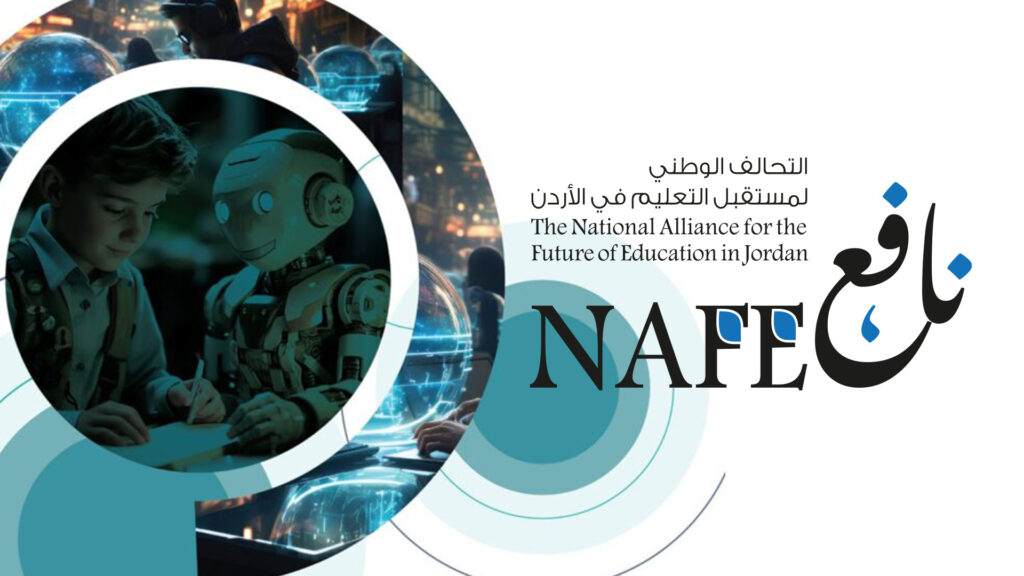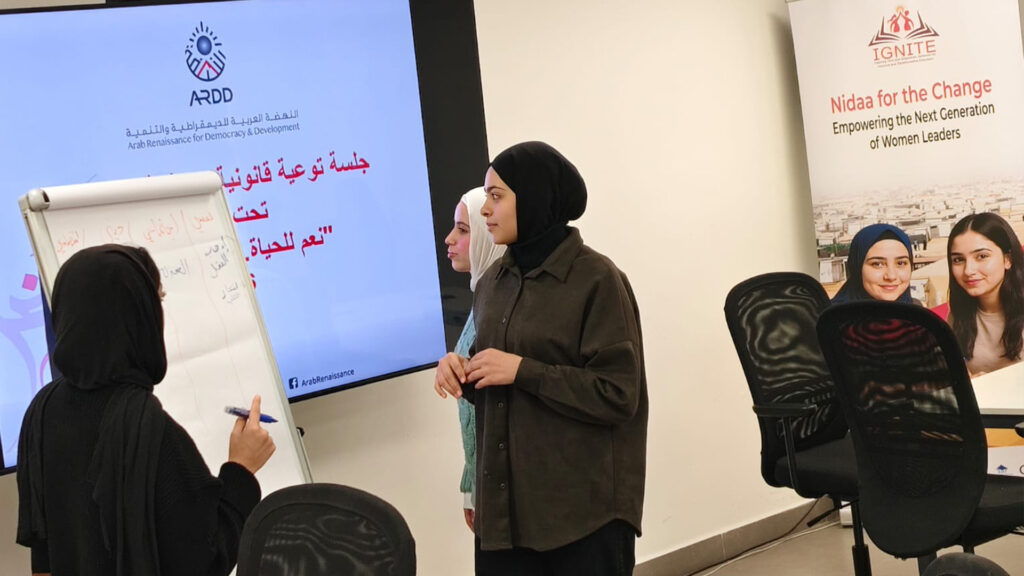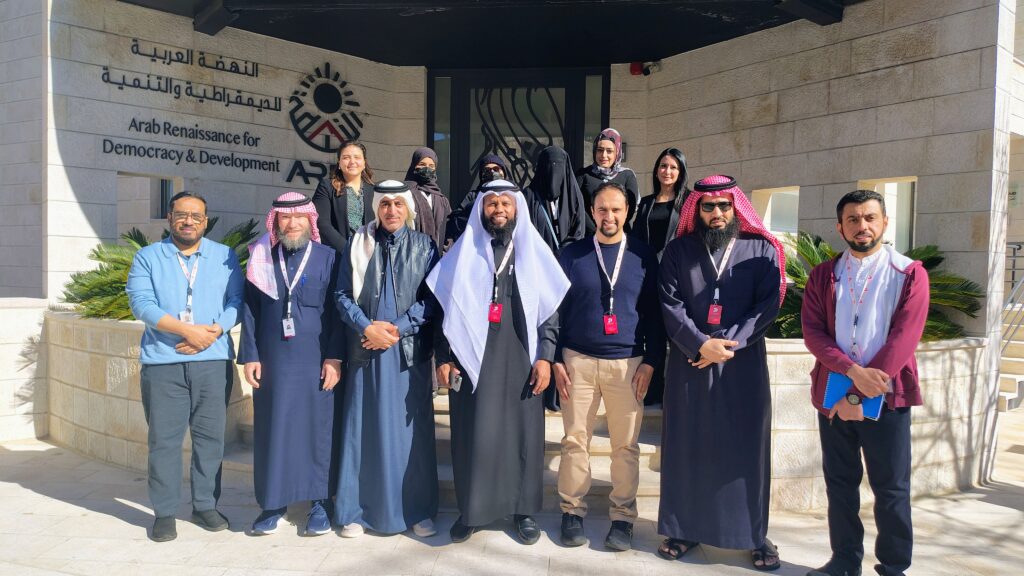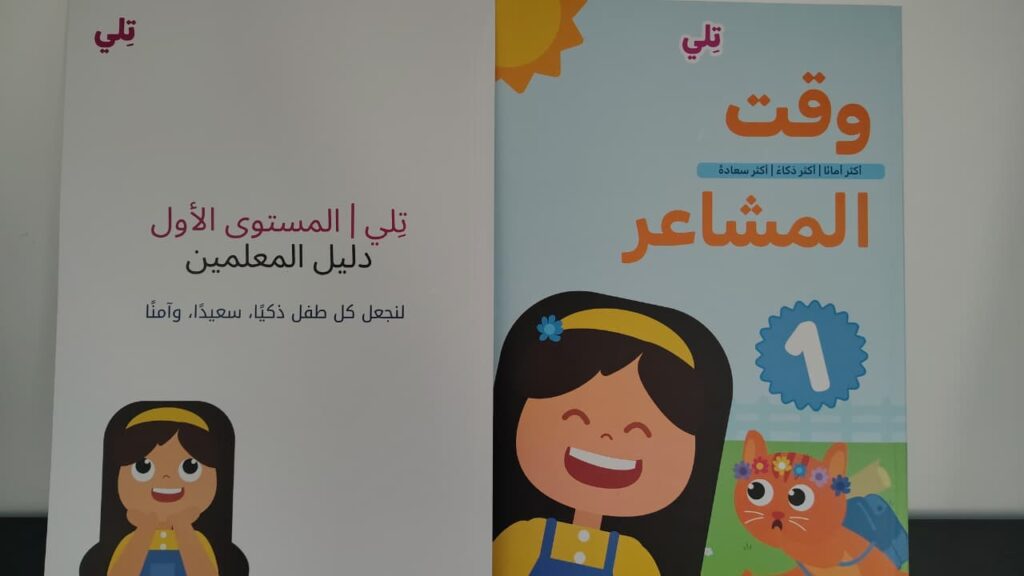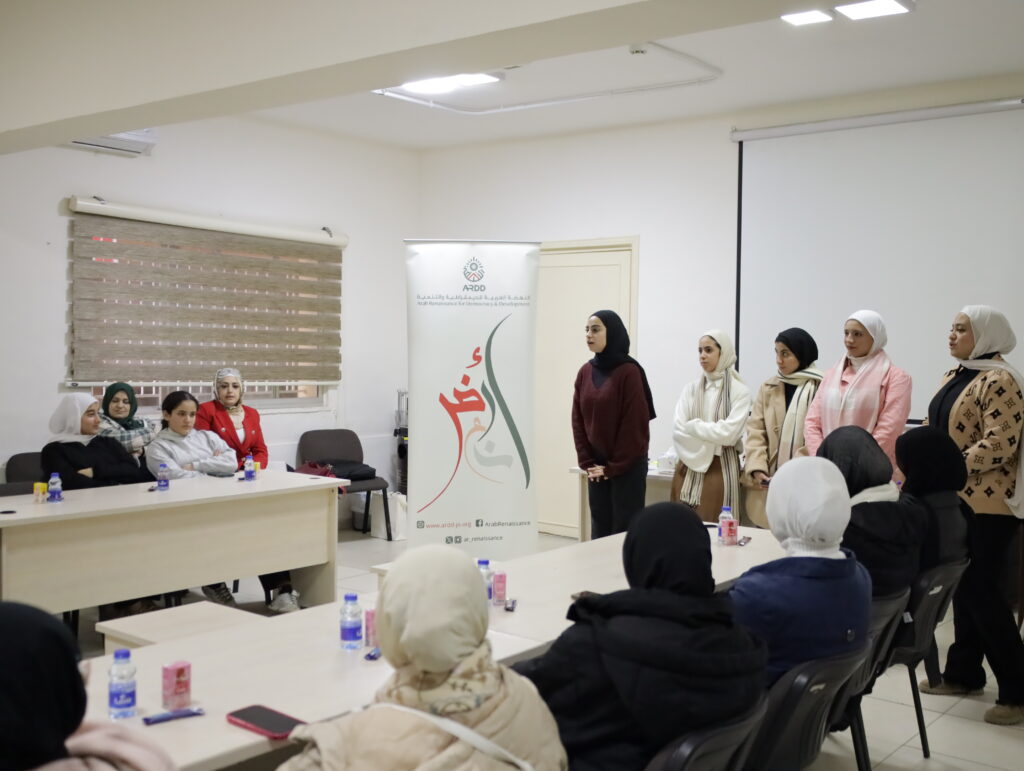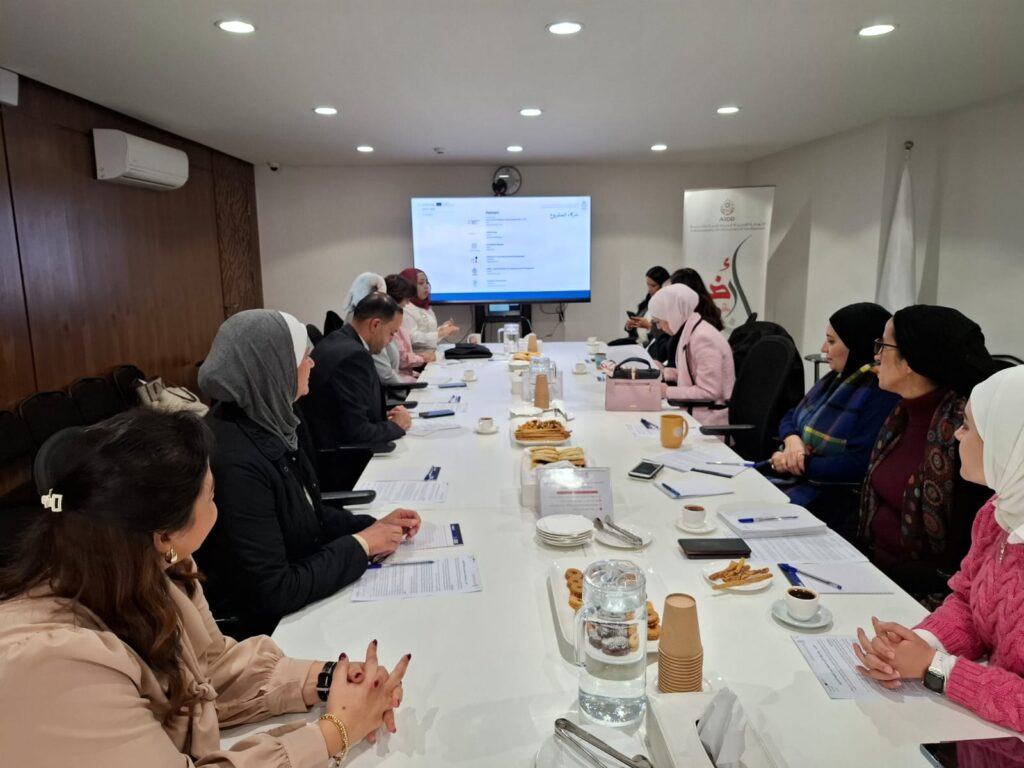The Renaissance Strategic Center (RSC), the think tank of the Arab Renaissance for Democracy and Development (ARDD), held a dialogue session on 23 October 2025 as part of its Engage & Discuss series, titled “From Hosting to Transition: Navigating the Opportunities and Challenges of Refugee Return.” The discussion examined the evolving realities of Syrian refugee return, its implications for Jordan, and the socioeconomic dynamics shaping this transition.
Featuring insights from UNHCR and Expectation State, the session brought together representatives from the diplomatic community, civil society, and international organizations to reflect on the challenges and opportunities facing both refugees and host communities.
Opening the discussion, Dr. Mariam Abu Samra, Senior Researcher and Coordinator at RSC, noted that Jordan stands at a pivotal juncture, gradually shifting from a protracted hosting phase toward a transitional stage of return. She emphasized the complexity of this process, which raises critical questions for those considering return as well as for those who remain.
Mari Sveen, Senior Durable Solutions Officer and Head of Solutions Unit at UNHCR Jordan, reaffirmed UNHCR’s commitment to voluntary, safe, and informed return. Since December 2024, around 165,000 registered Syrian refugees have returned from Jordan to Syria, mostly from host communities. Key drivers include attachment to home, economic pressures, and family reunification, while barriers remain linked to housing, employment, and safety. Sveen noted that UNHCR continues to support refugees through transportation and cash assistance and by gathering insights through community engagement and perception surveys.
Daniela Floridia, Senior Protection Officer and Head of Legal Unit at UNHCR Jordan, provided a perspective on protection frameworks in Jordan, also in view of the current regional dynamics. As of 2025, Jordan hosts approximately 488,000 registered refugees, 91.6% of whom are Syrians. She highlighted Jordan’s continued adherence to international protection standards, progress in civil documentation, and expansion of legal aid. A 2024 UNHCR study further reflected strong social cohesion, with 96% of Jordanians holding a positive view of refugees.
From the private sector perspective, Raya Rousan, Partner and Jordan Country Director at Expectation State, discussed the economic dimensions of return. She highlighted that Jordan’s shift from hosting to transition brings both risks, such as labor shortages and reduced market consumption, and opportunities, including resource reallocation, regional economic cooperation, and potential diaspora engagement. Rousan called for a national framework to guide the transition, enhance data systems, and ensure inclusive participation for both refugees and host communities.
The discussion concluded that Jordan’s transition from hosting to facilitating return requires a balanced approach, integrating humanitarian, legal, and economic perspectives. Achieving sustainable outcomes will depend on multi-sectoral coordination, continued international engagement, and a shared commitment to ensuring that refugee returns remain voluntary, safe, and dignified.

